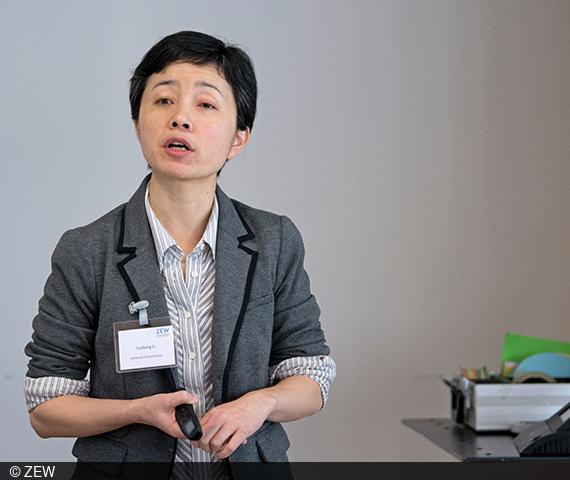Topics of Market Design Workshop Include Supplier Management, Delays to Large-Scale Projects and Refugee Distribution
WorkshopWhat mechanisms are there to help improve the distribution of refugees in their destination countries? How can public procurement be made more efficient? And how can companies organise their supplier pool in the most effective way possible? These are just a few of the questions from the field of market design discussed by around 30 international researchers and industry practitioners at a workshop on market design held by ZEW in Mannheim on 13 and 14 February 2017 .
Despite the continuing global increase in the number of refugees, the local distribution of refugees during resettlement remains largely subject to an ad-hoc decision-making process and is not systematically regulated. The United Nations Refugee Agency estimates that in 2017 more than a million refugees will be permanently unable to return to their home countries. Nevertheless, existing relocation capacities are not being used to the fullest despite the basic shortage. With this in mind, Alex Teytelboym from the University of Oxford presented his research on allocation mechanisms which could improve the distribution of refugees and their families in their destination countries. An important part of these mechanisms is that they take the preferences of refugees and of the various regions into account. These mechanisms should be designed is such a way that refugees feel that expressing their true preferences is in their best interest.
Strategic procurement and market design
Suppliers account for an ever greater share in added value and in some cases provide highly individualised and complex products. Within this context, Cuihong Li from the University of Connecticut discussed how companies can most effectively organise their supplier pool. Her research findings showed that, while a larger supplier pool leads to stronger competition, it also reduces the incentive for suppliers to innovate or invest and thus can lead to higher prices and inefficiency. What became clear was that a decisive factor for the most effective organisation of the pool was whether there were any observable efforts to innovate on the part of the suppliers. Her findings also showed that companies profit greatly when they can commit to a purchasing mechanism early on.
Public procurement and market design
A number of large-scale projects, such as the Berlin Brandenburg Airport, the Elbe Philharmonic Hall in Hamburg and the railway and urban development project Stuttgart 21, have made headlines due to major delays and spiralling costs and are just a few examples of the importance of strategic planning in public procurement. The root cause of problems like these is often poor planning, which makes renegotiations necessary further down the line. These renegotiations are not only time-intensive but also often push costs up even further since by that point the contractor is no longer in competition with other providers. In view of this problem, Fabian Herweg from the University of Bayreuth presented a market design that offers providers an incentive to report any deficiencies in their planning before they are awarded the contract and not to hold out for later renegotiations.
Market design at ZEW
Talks from renowned researchers from the field of market design were supplemented with contributions from members of industry. This combination of high-quality scientific research and industry expertise illustrates one of ZEW's strengths in its new research field of market design.
